|
Books Should Be Free Loyal Books Free Public Domain Audiobooks & eBook Downloads |
|
|
Books Should Be Free Loyal Books Free Public Domain Audiobooks & eBook Downloads |
|
Dramatic Works |
|---|
|
Book type:
Sort by:
View by:
|
By: Elizabeth Barrett Browning (1806-1861) | |
|---|---|
 A Drama of Exile
A Drama of Exile
In writing her ‘Drama of Exile’, Barrett’s subject was ‘the new and strange experience of the fallen humanity, as it went forth from Paradise into the wilderness’. The bizarre, lyrical scenes that follow powerfully describe the grief and guilt of Eve, the sorrowful pride of Lucifer, and the redeeming power of love. | |
By: Elizabeth Klett (1867-1936) | |
|---|---|
 Six Characters in Search of an Author
Six Characters in Search of an Author
Six Characters in Search of an Author (Sei personaggi in cerca d’autore) is the most famous and celebrated play by the Italian writer Luigi Pirandello. Pirandello, in the preface to the play, says that whenever a reader opens Dante’s Inferno, Francesca will drift down from the dark wind in her circle of Hell and tell the Pilgrim her story; and it will always be for the first time – just as the Mother in Pirandello’s play at one point makes an agonizing cry, always for the first time. Each character sees events and the other characters differently... | |
By: Eugene O'Neill | |
|---|---|
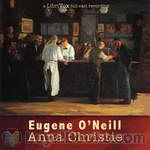 Anna Christie
Anna Christie
Eugene O'Neill's drama Anna Christie was first produced on Broadway in 1921 and received the Pulitzer Prize in 1922. It focuses on three main characters: Chris Christopherson, a Swedish captain of a coal barge and longtime seaman, his daughter Anna, who has grown up separated from her father on a Minnesota farm, and Mat Burke, an Irish stoker who works on steamships. At the beginning of the play Chris and Anna are reunited after fifteen years apart. Anna comes to live on her father's coal barge, but hides the secret of her past from him. When she meets Mat after an accident in the fog, they almost immediately fall in love - but Anna finds that forging a new future will not be easy. | |
 Beyond the Horizon
Beyond the Horizon
Beyond the Horizon is a 1920 play written by American playwright Eugene O'Neill. It was O'Neill's first full-length work, and the winner of the 1920 Pulitzer Prize for Drama. The play focuses on the portrait of a family, and particularly two brothers Andrew and Robert. In the first act of the play, Robert is about to go off to sea with their uncle Dick, a sea captain while Andrew looks forward to marrying his sweetheart Ruth and working on the family farm as he starts a family. | |
By: Euripides (480-406 BC) | |
|---|---|
 The Bacchae
The Bacchae
This tragedy is based on the mythological story of King Pentheus of Thebes and his mother Agave, and their punishment by the god Dionysus (who is Pentheus' cousin) for refusing to worship him. | |
 The Trojan Women
The Trojan Women
Euripides' play follows the fates of the women of Troy after their city has been sacked, their husbands killed, and as their remaining families are about to be taken away as slaves. However, it begins first with the gods Athena and Poseidon discussing ways to punish the Greek armies because they condoned Ajax the Lesser for dragging Cassandra away from Athena's temple. What follows shows how much the Trojan women have suffered as their grief is compounded when the Greeks dole out additional deaths and divide their shares of women. | |
 Medea
Medea
Euripides' tragedy focuses on the disintegration of the relationship between Jason, the hero who captured the Golden Fleece, and Medea, the sorceress who returned with him to Corinth and had two sons with him. As the play opens, Jason plans to marry the daughter of King Creon, and the lovesick Medea plots how to take her revenge. | |
By: F. Scott Fitzgerald | |
|---|---|
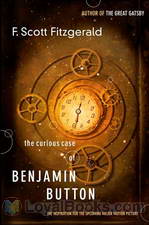 The Curious Case of Benjamin Button
The Curious Case of Benjamin Button
A life lived backwards, with events happening in reverse order forms the strange and unexpected framework of one of F Scott Fitzgerald's rare short stories. The Curious Case of Benjamin Button was published in Collier's in 1927 and the idea came to Fitzgerald apparently from a quote of Mark Twain's in which he regretted that the best part of life came at the beginning and the worst at the end. Fitzgerald's concept of using this notion and turning the normal sequence of life on its head resulted in this delightful, thought provoking fantasy tale... | |
By: Florence Holbrook (1860-1932) | |
|---|---|
 Dramatic Reader for Lower Grades
Dramatic Reader for Lower Grades
Despite the title's bland sounding name, this book is a charming collection of 16 plays for children. These little plays—well-known stories done into dialogue—were written for children who like to imagine themselves living with their favorite characters in forest, in palace, or in fairyland. Included are Cinderella, Robin Hood, William Tell, Hansel and Gretel and many more. | |
By: Frances Browne (1816-1879) | |
|---|---|
 Granny's Wonderful Chair
Granny's Wonderful Chair
Her most famous work, Granny's Wonderful Chair, was published in 1856 and it is still in print to this day. It is a richly imaginative book of fairy stories and has been translated into many languages. This work, read as a child by Frances Hodgson Burnett, inspired the writings of Little Saint Elizabeth and Other Stories | |
By: Frances Moore Brooke (1724-1789) | |
|---|---|
 History of Emily Montague Vol 1 (Dramatic Reading)
History of Emily Montague Vol 1 (Dramatic Reading)
The novel takes place 10 years after the Battle of the Plains of Abraham in 1759 when Quebec becomes a British colony. Written as a collection of letters, the story follows the relationships between Edward Rivers (a British soldier), his friend, John Temple (rather a cad), Emily Montague (a young British woman), and her dearest friend, Arabella Fermor (a flirtatious drama queen). Giving glimpses into the new frontier discoveries of Canada, one not only peeks into the personal relationships of these characters but gets swept away by the enticing descriptions of the "new world." This is Volume 1 out of 4. | |
By: Francis Beaumont (1584-1616) | |
|---|---|
 The Maid's Tragedy
The Maid's Tragedy
Beaumont and Fletcher's The Maid's Tragedy (first published 1619) is a sensational Jacobean sex tragedy. When gentleman soldier Melantius returns to Rhodes, he finds his dear friend Amintor is recently married - but not to his troth-plight love Aspatia (the maid of the title). Instead, the King has arranged a match between Amintor and Melantius' sister, the beautiful Evadne. On his wedding night, Amintor finds that his new wife has married him under false pretenses - and this unleashes a torrent of dire consequences, sexual, emotional, and ultimately political. | |
By: Francis William Bourdillon (1852-1921) | |
|---|---|
 Lost God
Lost God
The first-century scholar and historian Plutarch tells a strange tale of sailors at sea, who heard a mysterious voice proclaiming: "Pan is dead." This narrative poem tells the story of another Greek who sees the funeral of Pan in a vision and is launched on a quest to find the meaning of his vision. His journey eventually leads him all the way to Jerusalem and back, before he finds the answer he is searching for. - Summary by Devorah AllenLeander: MozartjrHelen: Krista ZaleskiPhilo: Larry WilsonPasserby: Kerry AdamsNarrator: Devorah Allen | |
By: Frank Wedekind | |
|---|---|
 The Awakening of Spring
The Awakening of Spring
The Awakening of Spring is the German dramatist Frank Wedekind's first major play and a seminal work in the modern history of theatre. It is the source material for the contemporary rock musical Spring Awakening. The play criticises the sexually-oppressive culture of fin de siècle Germany and offers a vivid dramatisation of the erotic fantasies that it breeds. Due to the nature of its content, the play has often been banned. | |
By: Frederick Arnold Kummer (1873-1943) | |
|---|---|
 Film of Fear
Film of Fear
(Written under the pseudonym, Arnold Fredericks.) Ruth Morton is a world-renowned film actress who seems to have it all: youth, beauty, wealth, and a viable career. But she soon becomes the target of a malicious stalker who begins sending her a series of cryptic threats. Dismissed at first, the stalker soon emerges as a legitimate -- and mysterious -- threat. She soon must call for the services of Richard and Grace Duvall, a husband and wife detective team who soon find themselves ensnared in a mystery where everyone soon becomes a target. | |
By: Friedrich Schiller (1759-1805) | |
|---|---|
 Mary Stuart
Mary Stuart
Schiller's tragedy depicts the final days of Mary, Queen of Scots, who has been imprisoned by her cousin, Queen Elizabeth I, because of her potential claim on the English throne. The action of the play revolves around an attempt to rescue Mary from prison and Elizabeth's indecision over whether or not to have her executed. The 1801 translation is by Joseph Mellish, a friend of Schiller's. | |
 Love and Intrigue
Love and Intrigue
Ferdinand is an army major and son of President von Walter, a high-ranking noble in a German duke's court, while Luise Miller is the daughter of a middle-class musician. The couple fall in love with each other, but both their fathers tell them to end their affair. The President instead wants to expand his own influence by marrying Ferdinand to Lady Milford, the duke's mistress, but Ferdinand rebels against his father's plan and tries to persuade Luise to elope with him. | |
 Camp of Wallenstein
Camp of Wallenstein
This is the first play of Friedrich Schiller's Wallenstein Trilogy. Set in a Bohemian camp during the Thirty Years War, it introduces the major characters of the rest of the trilogy, like Albrecht von Wallenstein and Max Piccolomini, from their subordinates' point of view. | |
By: Fyodor Dostoyevsky (1821-1881) | |
|---|---|
 Crime and Punishment
Crime and Punishment
A mysterious crime is being plotted in a tiny garret above a dilapidated apartment building in St Petersburg in Russia. The plotter, Rodion Raskolinikov, is a poor student who has delusions of ridding the world of “worthless vermin” and counter balancing these crimes with good deeds. He commits a murder to test his own theories and prove that crime comes naturally to the human species. Crime and Punishment is a path-breaking novel of ideas that changed the course of novel writing in the 20th century... | |
By: George Bernard Shaw (1856-1950) | |
|---|---|
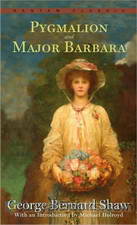 Pygmalion
Pygmalion
If you've watched and loved the delightful musical My Fair Lady, then you'd love to read the wonderful play on which it is based. Pygmalion by George Bernard Shaw is equally engrossing and as full of charm, wit and underlying pathos. First performed on stage in 1912, Pygmalion takes its title from the Greek myth of Pygmalion and Galatea. In the ancient story, a brilliant sculptor, Pygmalion falls in love with one of his own creations, a ravishingly beautiful sculpture whom he names Galatea. He propitiates Aphrodite, who grants his wish that his statue would come to life and that he could marry her... | |
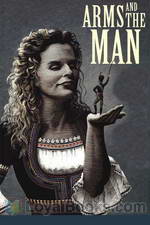 Arms and the Man
Arms and the Man
Arms and the Man is a comedy by George Bernard Shaw that takes place in 1885, during the Serbo-Bulgarian War. Raina Petkoff is engaged to the gallant Sergius Saranoff, hero of the recent Bulgarian victory over the Serbs. But she is distracted by the abrupt arrival of Captain Bluntschli, a Swiss mercenary who fought for the Serbian army. He takes refuge in her bedroom after the battle and although he is initially threatening, reveals that he carries chocolates instead of bullets. Will Raina marry the posturing Sergius or the chocolate cream soldier? Extra intrigue is provided by saucy servant girl Louka, her dour fiance Nicola, and Raina's hand-wringing parents. | |
 The Admirable Bashville
The Admirable Bashville
The Admirable Bashville is a product of the British law of copyright. As that law stands at present, the first person who patches up a stage version of a novel, however worthless and absurd that version may be, and has it read by himself and a few confederates to another confederate who has paid for admission in a hall licensed for theatrical performances, secures the stage rights of that novel, even as against the author himself; and the author must buy him out before he can touch his own work for the purposes of the stage... | |
 Mrs. Warren's Profession
Mrs. Warren's Profession
The story centers on the relationship between Mrs Kitty Warren, a rich woman, described by the author as "on the whole, a genial and fairly presentable old blackguard of a woman" and her daughter, Vivie. Mrs Warren is a middle-aged woman whose Cambridge-educated daughter, Vivie, is horrified to discover the morally questionable way her mother acquired her fortune. | |
 The Doctor's Dilemma
The Doctor's Dilemma
The Doctor's Dilemma is about Dr. Colenso Ridgeon, who has recently been knighted because of a miraculous new treatment he developed for tuberculosis. As his friends arrive to congratulate him on his success, he is visited by two figures who present him with a difficult decision. He has room for one more patient in his clinic; should he give it to Louis Dubedat, a brilliant but absolutely immoral artist, or Dr. Blenkinsop, a poor and rather ordinary physician who is a truly good person? Dr. Ridgeon's dilemma is heightened when he falls for Jennifer Dubedat, the artist's wife, who is innocent of her husband's profligacy. | |
 Candida
Candida
Candida, a comedy by playwright George Bernard Shaw, was first published in 1898, as part of his Plays Pleasant. The central characters are clergyman James Morell, his wife Candida and a youthful poet, Eugene Marchbanks, who tries to win Candida's affections. The play questions Victorian notions of love and marriage, asking what a woman really desires from her husband. The cleric is a Fabian Socialist, allowing Shaw—himself a Fabian—to weave political issues, current at the time, into the story. | |
 Major Barbara
Major Barbara
George Bernard Shaw's Major Barbara focuses on the family of aristocratic Lady Britomart Undershaft and her estranged husband Andrew, a millionaire armaments manufacturer. Their daughters Sarah and Barbara are both engaged to be married, and Lady Britomart decides to ask Andrew for monetary support. Barbara is a Major in the Salvation Army, and agrees to let her father visit the mission in the East End of London where she works. In exchange, she agrees to visit his munitions factory. The conflict between Barbara's philanthropic idealism and her father's hard-headed capitalism clash when he decides he wants to fund the Salvation Army... | |
 Caesar and Cleopatra
Caesar and Cleopatra
| |
 Saint Joan: Preface
Saint Joan: Preface
Saint Joan is a play by George Bernard Shaw about 15th-century French military figure Joan of Arc. Premiering in 1923, three years after her canonization by the Roman Catholic Church, the play reflects Shaw's belief that the people involved in Joan's trial acted according to what they thought was right. He wrote in his preface to the play: “There are no villains in the piece. Crime, like disease, is not interesting: it is something to be done away with by general consent, and that is all [there is] about it... | |
By: George Henry Lewes (1817-1878) | |
|---|---|
 Noble Heart
Noble Heart
This Victorian melodrama, written by G.H. Lewes, common law husband of novelist George Eliot , featured a scandalous love triangle. The scene is set in 16th century Spain. The main character is Don Gomez del la Vega, a nobleman in service of his king battling the Moors. In the midst of a campaign, he and his son, the gallant knight, Don Leon, both fall in love with the beautiful Juanna, daughter of a merchant, who had pledged her hand in marriage to Don Gomez. How can the situation be resolved... | |
By: George MacDonald | |
|---|---|
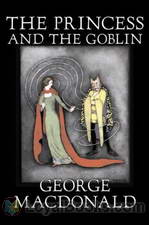 The Princess and the Goblin
The Princess and the Goblin
George MacDonald’s fairy stories and fantasy have inspired a number of writers including C.S. Lewis and J.R.R. Tolkien and of this popular fairy story, which as you might suspect concerns a little princess plotted against by a race of goblins, G.K. Chesterton said that it “made a difference to my whole existence.” | |
By: Gordon Bottomley (1874-1948) | |
|---|---|
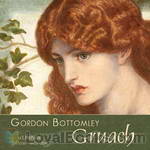 Gruach
Gruach
Gordon Bottomley's verse drama in two scenes is a prequel to Shakespeare's Macbeth. He provides Lady Macbeth with a name - Gruach - and imagines her family life and how she meets Macbeth. | |
By: Gotthold Ephraim Lessing (1729-1781) | |
|---|---|
 Miss Sara Sampson
Miss Sara Sampson
G.E. Lessing, widely regarded by students of theater as the world's first dramaturg, was also one of the first proponents of the German bourgeois tragedy. Miss Sara Sampson, in which a young woman runs off with a ne'er-do-well who is still entangled with his former mistress, was a reaction against the Voltarian verse drama popular in the eighteenth century. | |